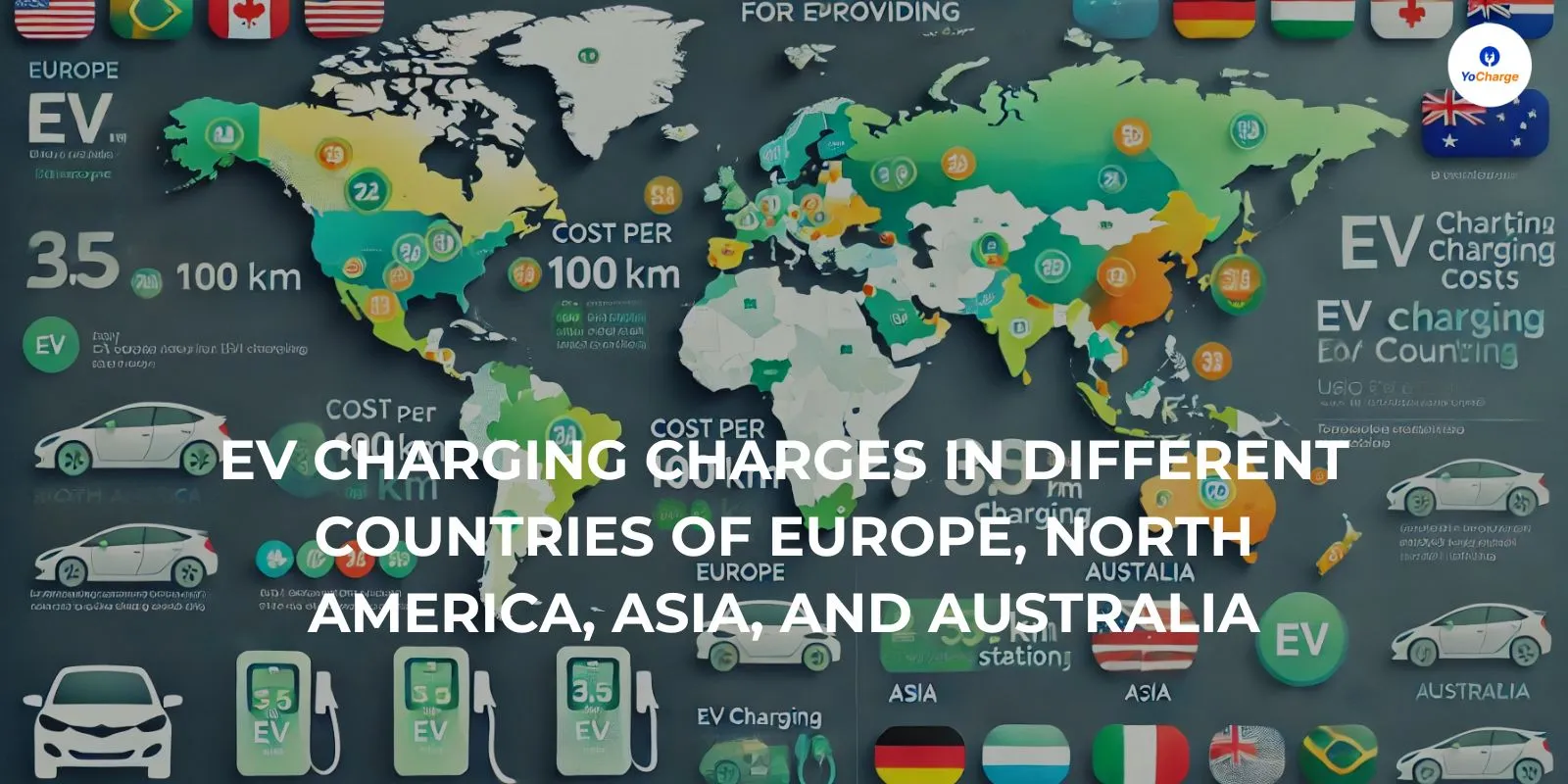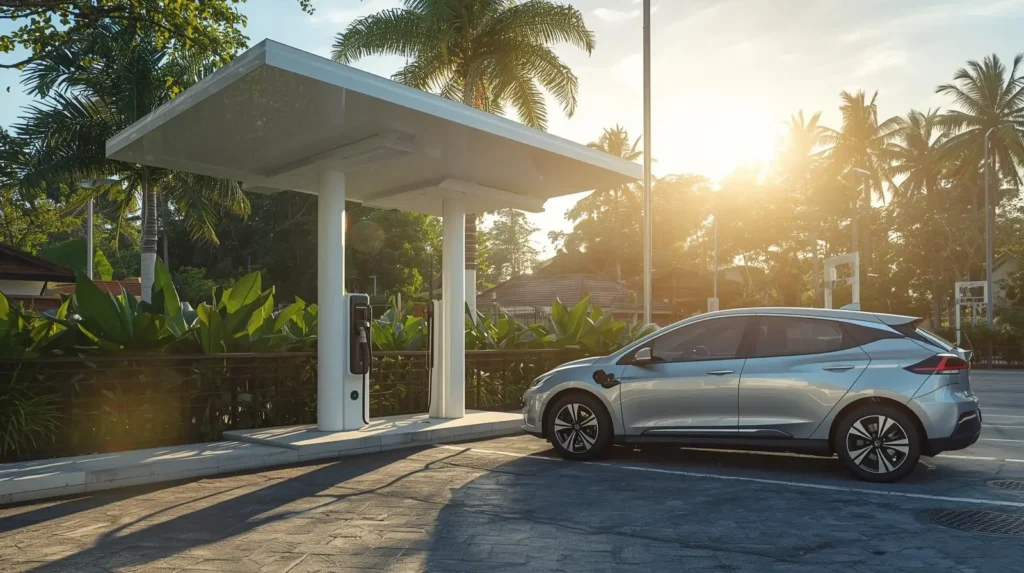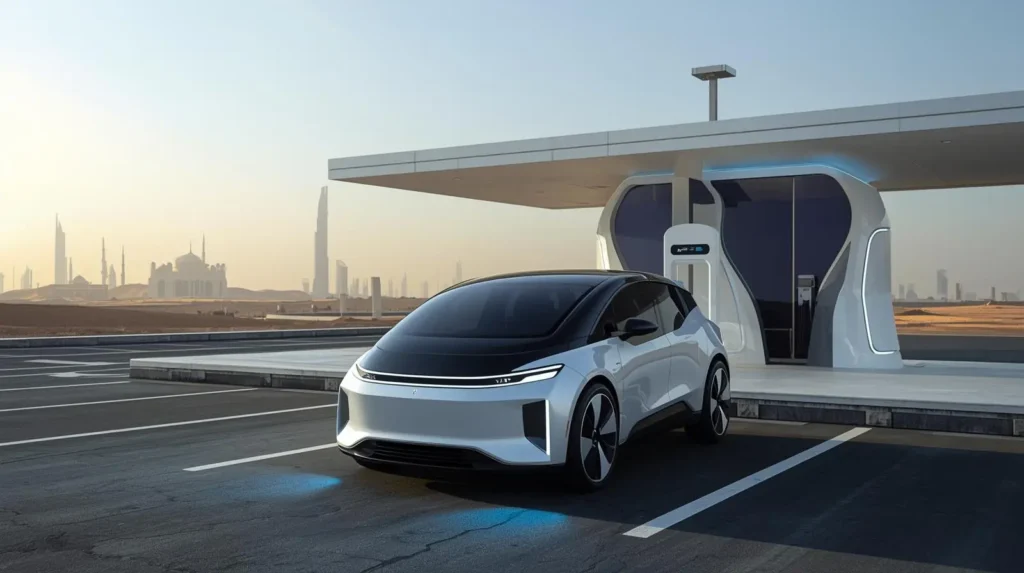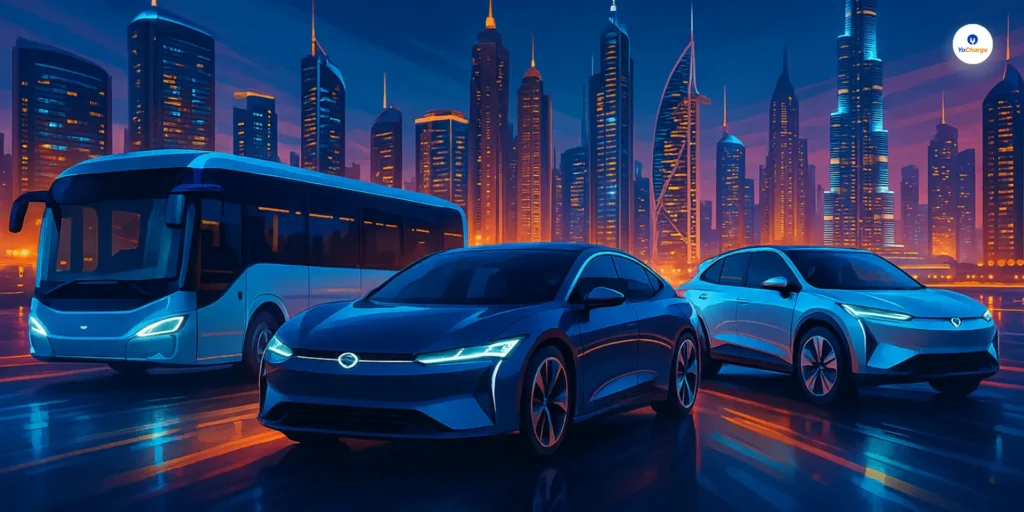
EV Charging Charges in Different Countries: Electric vehicles (EVs) are transforming global transportation into a greener alternative to traditional fuel-powered cars.
Yet, one question looms large for potential EV buyers: What does it cost to charge an EV? The answer varies and depends on where you live.
In some nations, charging an EV is cheap while high taxes or limited infrastructure drive up costs in other countries.
This article explores EV charging charges in different countries. So, if you are curious about sustainable transportation, this global perspective sheds light on what fuels the price of clean energy mobility.
What Influences EV Charging Charges in Different Countries?
Understanding the factors that determine EV charging costs helps explain why prices vary globally.
- Electricity Prices: Electricity rates are a major factor. Countries with abundant renewable energy sources, like wind or hydropower, often offer lower costs.
- Charging Infrastructure: The type and availability of charging stations impact costs. DC fast chargers typically cost more than slower home chargers.
- Government Policies: Policies such as subsidies or taxes influence charging costs. Some nations provide tax breaks for EV users or invest in affordable infrastructure.
- Market Competition: Increased competition among charging network operators reduces prices. Limited competition usually leads to higher costs.
- Economic Factors: Economic conditions, like energy imports or production costs, also affect how much consumers pay for charging.
EV Charging Charges in Different Countries of Europe
Europe leads in EV adoption, but charging costs differ significantly between countries.
EV Charging Charges in Iceland
- Cost: €2.89 per 100 km
- Reason: Geothermal and hydropower resources ensure cheap electricity.
EV Charging Charges in Portugal
- Cost: €3.18 per 100 km
- Reason: Investments in wind and solar power reduce electricity costs.
EV Charging Charges in Finland
- Cost: €4.63 per 100 km
- Reason: A stable mix of nuclear energy and renewables keeps costs low.
EV Charging Charges Norway
- Cost: €18.93 per 100 km
- Reason: High taxes and network fees drive up charging costs.
EV Charging Charges Slovenia
- Cost: €17.02 per 100 km
- Reason: Dependence on imported energy inflates electricity prices.
EV Charging Charges Estonia
- Cost: €10 per 100 km
- Reason: Developing infrastructure contributes to higher charging rates.
Also Read: Tata Nexon EV Charging Cost & Charging Options
EV Charging Charges Across Different Countries in North America
North America is rapidly expanding its EV infrastructure, with costs varying by region.
United States’s EV Charging Charges
- Average Cost: $0.15 per kWh
- Details: A full charge ranges from $5 to $15, depending on electricity rates. States like California face higher costs due to energy policies.
Canada EV Charging Charges
- Average Cost: CAD $0.10 to $0.15 per kWh
- Details: Charging costs between CAD $4 and $10 per full charge. Hydropower in British Columbia keeps prices lower.
EV Charging Charges in Different Countries of Asia
Asia is a key player in EV adoption with China, Japan, and India.
China’s EV Charging Charges
- Average Cost: ¥1 to ¥2 per kWh
- Details: Full charges cost ¥30 to ¥80, thanks to extensive charging infrastructure and competitive energy prices.
Japan’s EV Charging Charges
- Average Cost: ¥20 to ¥30 per kWh
- Details: Full charges cost ¥1,500 to ¥3,000. A growing focus on renewables aims to reduce electricity costs further.
EV Charging Charges of India
- Average Cost: ₹6 to ₹8 per kWh
- Details: Charging costs ₹300 to ₹400 for a Tata Nexon EV. Investments in charging infrastructure are improving affordability.
EV Charging Charges in Australia
Australia’s EV adoption is gradually increasing alongside its charging infrastructure.
- Average Cost: AUD $0.25 per kWh
- Details: Full charges range from AUD $5 to AUD $15. Local electricity rates and infrastructure influence prices.
Comparison Table of Charging Costs by Country
| Country | Cost per 100 km (Local Currency) | Main Energy Source |
|---|---|---|
| Iceland | €2.89 | Geothermal/Hydropower |
| Portugal | €3.18 | Wind/Solar |
| Finland | €4.63 | Nuclear/Renewables |
| Spain | €7.11 | Mixed |
| Germany | €8.93 | Mixed |
| France | €7.26 | Mixed |
| Norway | €18.93 | Hydropower |
| Slovenia | €17.02 | Imported Energy |
| Estonia | €10 | Imported Energy |
| United States | $0.14–$0.20 | Mixed |
| Canada | CAD $0.10–$0.15 | Hydroelectric |
| China | ¥1–¥2 | Mixed |
| Japan | ¥20–¥30 | Mixed |
| India | ₹6–₹8 | Coal/Renewables |
| Australia | AUD $0.25 | Mixed |
Global Trends in EV Charging Costs
EV charging charges in different countries depend on energy sources, government policies, and competition.
- Countries with huge renewables offer lower costs (e.g., Iceland, Portugal).
- Nations with high taxes or energy imports face higher costs (e.g., Norway and Slovenia).
- Market competition in developed regions often drives prices down.
Also Read: Fast Charger vs Rapid Charger: Which One Suits Your EV Best?
Conclusion
Understanding EV charging charges in different countries is vital for consumers as EV adoption grows worldwide. Charging costs vary due to energy sources, government policies, and infrastructure investments.
Countries like Iceland and Portugal offer cheaper charging because of abundant renewables, while Norway and Slovenia face higher costs due to taxes or energy imports.
In North America, Asia, and Australia, pricing depends on energy dynamics and infrastructure.
Affordable and sustainable EV charging requires governments to promote renewables, invest in infrastructure, and encourage competition. These steps will reduce costs and boost accessibility.



